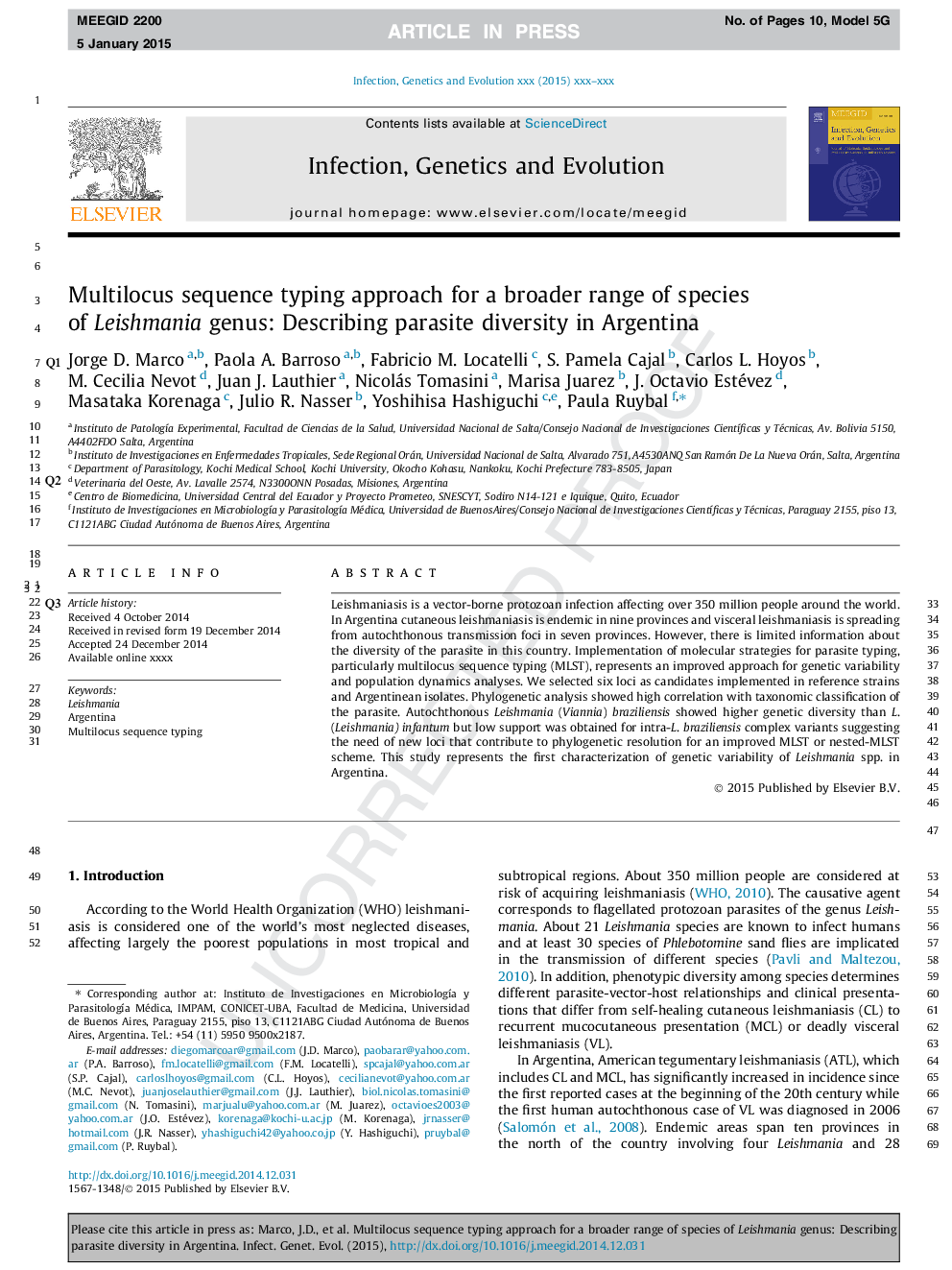| Article ID | Journal | Published Year | Pages | File Type |
|---|---|---|---|---|
| 5908825 | Infection, Genetics and Evolution | 2015 | 10 Pages |
Abstract
Leishmaniasis is a vector-borne protozoan infection affecting over 350 million people around the world. In Argentina cutaneous leishmaniasis is endemic in nine provinces and visceral leishmaniasis is spreading from autochthonous transmission foci in seven provinces. However, there is limited information about the diversity of the parasite in this country. Implementation of molecular strategies for parasite typing, particularly multilocus sequence typing (MLST), represents an improved approach for genetic variability and population dynamics analyses. We selected six loci as candidates implemented in reference strains and Argentinean isolates. Phylogenetic analysis showed high correlation with taxonomic classification of the parasite. Autochthonous Leishmania (Viannia) braziliensis showed higher genetic diversity than L. (Leishmania) infantum but low support was obtained for intra-L. braziliensis complex variants suggesting the need of new loci that contribute to phylogenetic resolution for an improved MLST or nested-MLST scheme. This study represents the first characterization of genetic variability of Leishmania spp. in Argentina.
Related Topics
Life Sciences
Agricultural and Biological Sciences
Ecology, Evolution, Behavior and Systematics
Authors
Jorge D. Marco, Paola A. Barroso, Fabricio M. Locatelli, S. Pamela Cajal, Carlos L. Hoyos, M. Cecilia Nevot, Juan J. Lauthier, Nicolás Tomasini, Marisa Juarez, J. Octavio Estévez, Masataka Korenaga, Julio R. Nasser, Yoshihisa Hashiguchi, Paula Ruybal,
